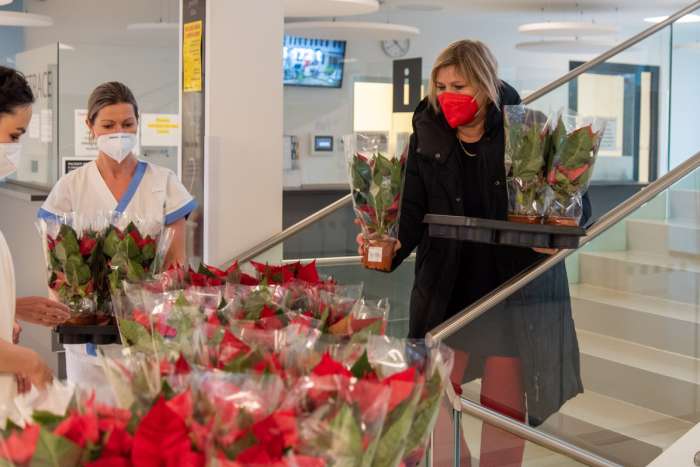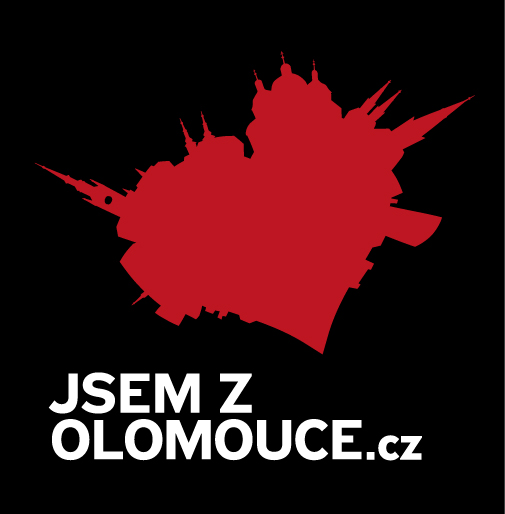
Nepřerušit tradici. To byl pro vedení olomouckého sdružení Šance hlavní důvod, proč se rozhodlo i přes nejistotu spojenou s pandemií COVID-19 uspořádat v roce 2020 sbírku Vánoční hvězda. Výsledek 23. ročníku charitativní akce, která ohlašuje advent a blížící se svátky, však nakonec pořadatele přímo ohromil. Přestože epidemiologická situace zásadně ovlivnila způsob distribuce a prodeje pryšce nádherného, výtěžek se vyšplhal až na částku 1 924 560 korun. Prostředky poslouží k obohacení života malých pacientů Dětské kliniky Fakultní nemocnice Olomouc.
„Sbírku jsme rozbíhali v září, kdy jsme vůbec nevěděli, jaká bude situace. Chvíli jsme i zvažovali, jestli ji vůbec pořádat, ale nakonec jsme se rozhodli, že důležité je udržet dlouholetou tradici a kontinuitu. Byli jsme ale smíření
s tím, že pandemie výrazně zasáhne do výtěžku sbírky. Mezi největší odběratele totiž vždy patřily základní školy, ale kvůli jejich uzavření se řada objednávek neuskutečnila,“ přiznává ředitelka Šance Herta Mihálová. Sdružení však kontaktovala řada firem a institucí s nabídkou spolupráce a pomoci. „Dobrovolníci se chtěli do sbírky zapojit i přesto, že protiepidemická opatření změnila také koncepci prodeje. Květiny se nemohly prodávat v nákupních centrech, jak bylo zvykem, ale na určených místech formou výdejového okénka,“ dodává Herta Mihálová a připomíná, že více než sedm set vánočních hvězd sdružení darovalo všem zdravotníkům pracujícím na covidových odděleních Fakultní nemocnice Olomouc. „Tímto gestem jsme jim chtěli poděkovat za jejich nasazení v těžkém období,“ vysvětluje ředitelka Šance.
Nakonec se prodalo 39 tisíc květin a finální výtěžek činí 1 924 560 korun, což je pro lidi kolem Šance neuvěřitelný výsledek. „Máme velkou radost. Vůbec jsme s tím nepočítali. Děkujeme všem dárcům i spolupracovníkům,“ je nadšená Herta Mihálová. Finanční prostředky Šance využije především na humanizaci nemocničního prostředí, na nákup nadstandardního vybavení a zdravotnických potřeb, na finanční a sociální pomoc rodinám, na financování rekondičních pobytů pro malé pacienty po léčbě, na doplnění výtvarného materiálů nebo na financování volnočasových aktivit. „V letošním roce chceme výtvarně vyzdobit nově zrekonstruované oddělení JIRP a opravit již dřívější výmalby hemato-onkologického oddělení,“ doplňuje další využití finančních prostředků ředitelka sdružení.
S prodejem vánočních hvězd pro dobročinné účely začalo sdružení Šance v roce 1998. Tehdy se podařilo získat 58 700 korun. Od té doby se částka s drobnými výkyvy rok od roku zvyšovala. V roce 2018 činil výtěžek 3 009 988 korun, o rok později to bylo už 3 196 290 korun. Podrobnosti o sbírce se dozvíte i na webových stránkách www.vanocnihvezda.eu.










Komentáře
montreal airport car parking t136t
buy viagra pharmacy 100mg
canada drugs online
btrhbfeojofxcpxuwnsp5h7h22htohw4btqegnxatocbkgdlfiawhyid.onion
bs2best.at
блекспрут
blacksprut2rprrt3aoigwh7zftiprzqyqynzz2eiimmwmykw7wkpyad.onion
btrhbfeojofxcpxuwnsp5h7h22htohw4btqegnxatocbkgdlfiawhyid.onion
pharmacy online no prescription
drugstore online
Stránky